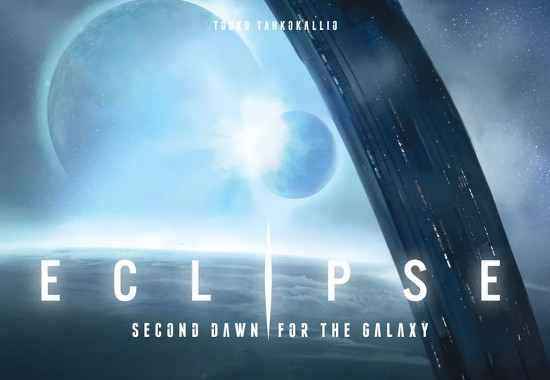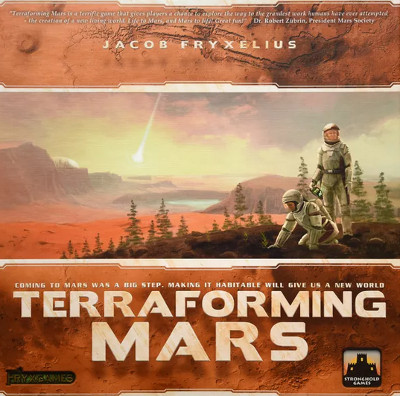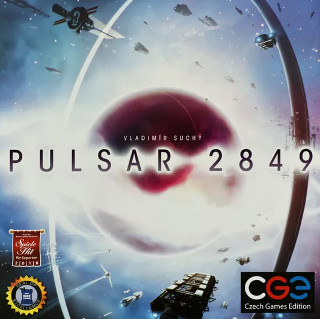Space-themed board games captivate players through detailed cosmic exploration simulations. They feature precise rules for resource management, expansion, and technology advancement. Players make complex decisions while establishing colonies or engaging in combat across galaxy maps. The genre has evolved sophisticated mechanics from dice combat to intricate economies. The best titles balance thematic immersion with strategic depth.
Key Takeaways
- Eclipse offers asymmetric civilization management with deep strategic gameplay in a modular 51-tile galaxy board.
- Terraforming Mars features card-driven planetary development focusing on resource management and competitive mechanics.
- SpaceCorp provides a three-era exploration format with minimal negative interaction, suitable for 1-4 players.
- Mass Effect: The Board Game incorporates narrative elements with character progression and impressive miniatures from the franchise.
- Space-themed board games vary in time investment, with options ranging from quick sessions to comprehensive galactic simulations.
Space-Exploration Tabletop Favorites
While the cosmos remains largely inaccessible to ordinary citizens, space exploration board games offer a tangible pathway to interstellar adventure from the comfort of one’s gaming table. These space themed encounters meticulously balance resource management with strategic decision-making, allowing players to undergo the thrill of cosmic revelation without NASA’s budget constraints.
The most acclaimed space board games typically feature:
- Variable player interaction models (cooperative missions to competitive colonization)
- Scalable complexity suitable for both casual enthusiasts and dedicated strategists
- High-quality components that improve thematic immersion
- Adjustable play durations (30-180 minutes) to accommodate different gathering types
When players take command of their own interstellar empires in titles like Terraforming Mars or Race for the Galaxy, they engage with precisely calibrated game mechanics that reward long-term planning while preserving decision autonomy.
Cooperative Space Missions
Beyond the realm of competitive interstellar domination, cooperative space-themed board games present players with shared objectives that demand collective problem-solving and synchronized decision-making. In these cooperative space missions, players work together to overcome challenges such as exploring uncharted planets or surviving hostile alien encounters.
Titles like “The Crew: The Quest For Planet Nine” exemplify this category through trick-taking mechanics requiring precise coordination without full information disclosure. Even though primarily competitive, “Terraforming Mars: Ares Expedition” offers a collaborative alternative where terraforming becomes a shared responsibility. Narrative-driven experiences like “Alien: The Role-Playing Game” immerse participants in scenarios demanding strategic cooperation.
These games invariably require effective communication and resource management, ensuring real fun through meaningful interaction rather than solitary decision-making. Quality components in these games improve immersion, transforming abstract cooperation into tangible shared adventures across the cosmos.
Competitive Colony Building Games
Numerous competitive colony building games transport players into the role of interstellar pioneers vying for dominance across extraterrestrial terrains. These strategic contests demand precise resource management while establishing settlements on alien worlds.
“Terraforming Mars” exemplifies this genre, requiring players to develop corporate strategies through card-driven mechanics to transform the red planet. Similarly, “Eclipse” combines exploration with asymmetric gameplay elements, creating distinct paths to supremacy.
These games typically span 90 minutes to several hours, allowing for intricate strategic depth rather than superficial interaction. Players must balance resource acquisition, construction timing, and tactical positioning against opponents to secure victory.
Expansion modules further improve replayability, introducing advanced mechanics for experienced colonizers. The competitive nature of colony building games creates a dynamic environment where freedom of strategic expression flourishes alongside calculated opposition.
Interstellar Trading Systems
Interstellar trading systems form the economic backbone of many space-themed board games, establishing intricate networks of resource exchange that challenge players’ strategic acumen. These systems demand meticulous resource management as participants acquire and utilize commodities to extend their cosmic influence.
Games like “Eclipse” and “Race for the Galaxy” exemplify this mechanic, requiring players to navigate dynamic markets where supply and demand fluctuate based on in-game developments. The value of resources shifts constantly, forcing traders to adapt their trading strategies accordingly.
Player interactions through alliances and negotiations introduce additional layers of complexity, as competitors forge temporary pacts or engage in economic rivalries. Success in these galactic marketplaces requires foresight, technological advancement planning, and nimble responses to opponents’ maneuvers—creating a liberating gameplay experience where calculated risk meets opportunistic enterprise.
Dice-Driven Space Conquest
While trade networks establish economic infrastructures across the cosmos, the theater of galactic dominance often unfolds through the cast of dice. In dice-driven space conquest games, players can take actions determined by probability’s whim, translating random outcomes into calculated maneuvers across star systems.
Games like Pulsar 2849 exemplify this mechanical approach, requiring participants to master complex dice allocation for energy network optimization. The fundamental randomness creates dynamic decision trees, as strategies must adapt to each roll’s outcome. This variability significantly improves replayability.
Strategic gameplay deepens when dice mechanics intersect with supplementary systems—technology advancement paths, asymmetric faction abilities, and resource management protocols. The tension between chance and choice defines these experiences, as commanders must navigate the unpredictable cosmos while maintaining tactical coherence through probabilistic challenges.
Alien Survival Horror
Beyond the strategic abstractions of dice-driven mechanics lies a more visceral gaming experience where the void of space transforms into a claustrophobic theater of terror. “Alien: The Roleplaying Game” exemplifies this genre, meticulously crafting survival horror for 1-4 players within the canonical cinematic universe.
| Aspect | Description | Gameplay Value | Player Appeal |
|---|---|---|---|
| Starter Set | Complete introductory package | Accessibility | Immediate immersion |
| Scenarios | Pre-written or custom campaigns | Flexible commitment | Creative freedom |
| Mechanics | Resource management focus | Strategic depth | Tactical autonomy |
| Horror Elements | Tension-driven encounters | Atmospheric immersion | Emotional intensity |
The game’s structural emphasis on collaborative storytelling places players in precarious scenarios where survival demands both resourcefulness and cooperation. Unlike conquest-oriented titles, this horror experience derives its potency from scarcity and vulnerability—a deliberate inversion of power dynamics that heightens psychological engagement.
Space Combat Dynamics
Space combat systems represent a distinct category within cosmic-themed tabletop games, shifting from the atmospheric tension of survival horror to the calculated precision of tactical warfare. These systems typically operate on grid or hex-based maps where tactical decision-making determines success or failure in battle.
Turn-based mechanics predominate, requiring players to allocate limited resources across movement, offensive strikes, and defensive posturing. Damage and health mechanics create consequential choices as commanders must prioritize repairs against continued offensive operations. Combat resolution frequently employs probability-based systems—dice rolls or card draws—modified by ship specifications and strategic positioning.
The implementation of asymmetrical factions introduces tactical depth, as each force presents distinct combat profiles requiring adaptive strategies. Players must utilize their faction’s strengths while exploiting opponents’ vulnerabilities, creating a constantly evolving battlefield where freedom of choice drives the path to victory.
Space Epic Game Reviews
A multitude of space-themed board games offer distinctive experiences across the spectrum of complexity, playtime, and player interaction models. Twilight Imperium stands as the ideal star of epic space conquest, featuring 17 unique factions across a modular 51-tile galaxy board, although requiring substantial time investment.
Eclipse delivers asymmetric civilization management with technological advancement paths, providing fun strategic depth in a more manageable timeframe. SpaceCorp’s three-era exploration format accommodates solo to quad-player sessions with minimal negative interaction—ideal for strategy purists.
Terraforming Mars balances competitive and cooperative mechanics through card-driven gameplay, in spite of endgame pacing issues. Meanwhile, Mass Effect: The Board Game translates the beloved franchise with striking miniatures and character progression, although its combat mechanics lack sophistication. These board games collectively demonstrate the genre’s capacity to simulate galactic adventures through diverse mechanical frameworks.





